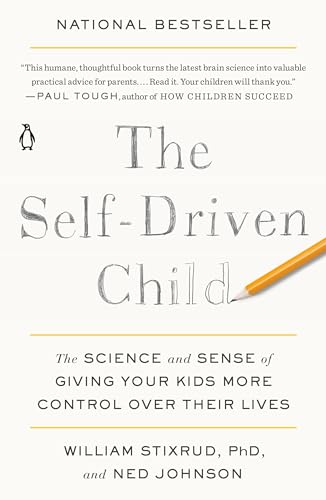The Self-Driven Child: The Science and Sense of Giving Your Kids More Control Over Their Lives
amazon.com
The Self-Driven Child: The Science and Sense of Giving Your Kids More Control Over Their Lives

Bill frequently tells the older children and adolescents he is testing, “I hope I find things you suck at—because successful people are good at some things and not so good at others, but wisely make a living doing something they’re good at.”
“This result suggests the rather horrifying possibility that when you are sleep deprived, you effectively form twice as many memories of negative events in your life as of positive events,” Stickgold concluded, “producing a biased—and potentially depressing—memory of your day.”8
Also, what seems like a disaster often turns out to be a blessing in disguise. There are many paths to success, and sometimes we only find the right one by getting a little lost.
It takes courage to face our fears about the future. It also takes humility to accept that we don’t often know what’s in our kids’ best interest. It takes a change in mindset to focus on ourselves—our own emotions and attitudes—as an extremely important element of our child-rearing.
Technology is an incredible tool with the great power to enrich lives, but the things it displaces—family time, face-to-face interaction with friends, study time, physical activity, and sleep—are invaluable, and the way technology trains the brain to expect constant stimulation is deeply troubling.
This taps into a basic psychological construct: intermittent reinforcement. With intermittent reinforcement, you don’t know if you’ll be rewarded for something each time you do it, but you might be, and the anticipation drives you.
We know kids feel most comfortable when the world feels safe, and the world will feel safest to them when we create an environment that’s predictable and structured.
Teenagers are the closest to legal age, and they are the ones who most need to hear this message: “I have confidence in your ability to make informed decisions about your own life and to learn from your mistakes.”
We love the term “nonanxious presence,” but we didn’t invent it. It was coined by Edwin Friedman, a rabbi, student of complex systems, and consultant.